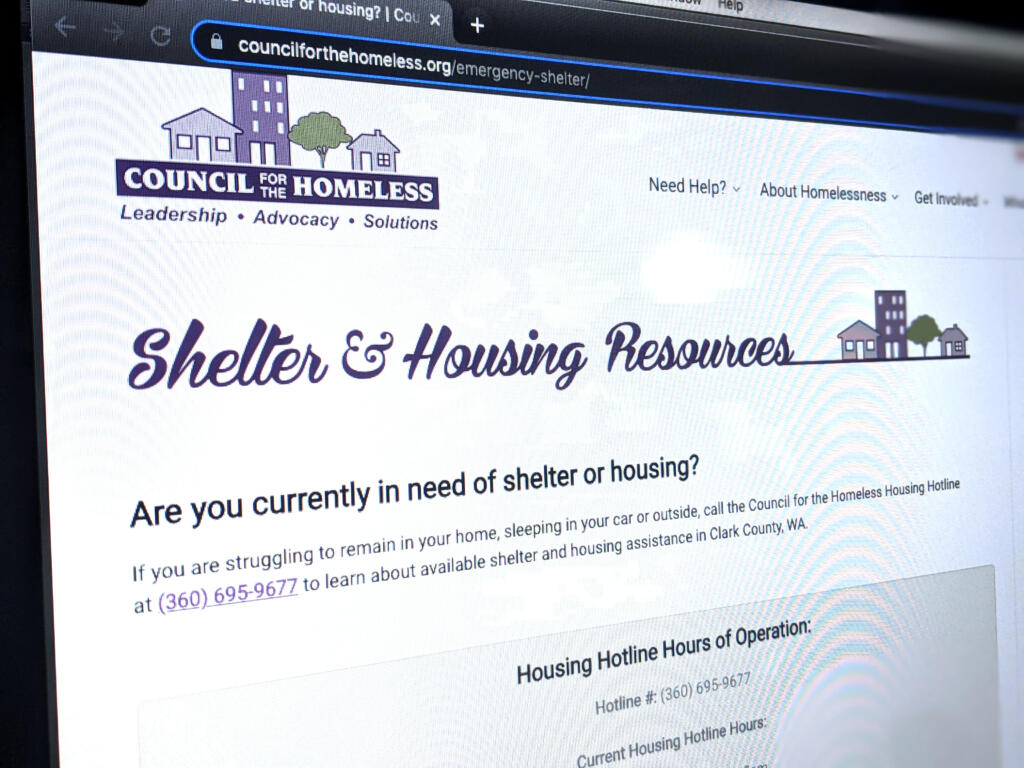David Poland doesn’t know how he’s going to pay his November rent.
Poland wants to stay in his Willow Creek apartment, where he has lived since it was built in 1989.
For the past few years, he gradually pulled money from his savings account to pay for college expenses and growing rent. Poland’s financial situation became increasingly strained after the pandemic struck, which led him to leave his job under COVID-related circumstances.
He qualified for rental assistance from the Council for the Homeless that covered his rent for a few months. However, the program only continues through October, leaving Poland to find other avenues to pay his $1,160 rent while he secures a job.
“I’m not sure if I have to take out what little I have left (from my savings),” he said. “That’s the only money I have.”
Poland’s struggle with rent increases isn’t rare.
Market rates continue to increase because of the scarcity of available housing and the recent development of high-rent apartments. In Vancouver, the average rent increase in October was 16 percent, which is predictive for the rest of the year, according to a Vancouver Housing Authority analysis.
Across the state and nation, many tenants are juggling rent increases with other essential living costs. Some are frightened by the looming threats of eviction as Gov. Jay Inslee’s moratorium is set to end at 11:59 p.m. Oct. 31.
The moratorium, which was previously set to expire Sept. 30, prevents landlords from evicting tenants for any past-due rent from Feb. 29, 2020, through July 31, 2021. It was extended because counties weren’t receiving and distributing COVID-19 relief funds for rental assistance quickly enough.
Kate Budd, executive director at the Council for the Homeless, said she is worried about people being put on the path to homelessness if the moratorium isn’t extended again. Evicted individuals might stay with family members or friends until challenges arise that cause them to move out, she said.
The cycle may continue until people don’t have anyone else to help them.
“Homelessness happens for many people when their support system can no longer help them stay housed,” Budd said. “Unfortunately, these connections may stop working.”
Judy Russel, president of the Clark County Veterans Assistance Center, said her clients are scared and don’t know what to do. The organization used all the funds it received from the CARES Act to help veterans who owed back rent.
Russel said her organization can tap into the federal assistance fund if there is a declared state of emergency, but that ends when the moratorium does. Otherwise, the center will return to providing rental assistance to veterans for only one month every two years, she said.
“We worked so hard to get veterans off the streets and into housing,” Russel said. “Now for something like this to come along — it sets them back.”
Federal and State Emergency Rental Assistance funds are directly allotted to local governments that distribute them to local service providers, such as the Council for the Homeless. The assistance is granted to low-income residents who apply and have been affected by the pandemic.
Michael Torres, the council’s community services program manager, said Clark County distributed more than $27 million in rent and utility assistance to 3,593 households between Aug. 1, 2020, and Oct. 8, 2021. Local agencies are operating at full capacity and open windows for applications periodically.
“The need that is out there is clearly real, and people are in crisis,” Torres said. “Having these short windows (is) not optimal, but everyone is working really hard to get as much rental assistance to those who need it” as possible.
The Council for the Homeless’ latest federal assistance window closed less than an hour after all of its 1,200 applications were taken.
The next opening for applications will be at 9 a.m. Monday; it can be accessed online, by calling the Housing Solutions Center, or by going to the Share Volunteer Center in person. Future application dates can be found on the Council for the Homeless’ website.
Budd suggested people go to faith communities for additional rent assistance if they can’t secure an application during the open window. She said those who are facing an eviction should communicate repayment plans with their landlord or property manager and seek advice through mediation and legal assistance.
“(Landlords and tenants) don’t know what the future holds for them,” Budd said.
Leah Halstead, VHA director of property and asset management, said her association doesn’t foresee evictions happening. Instead, it anticipates an increase in people needing to move into affordable housing.
Agencies that provide assistance are Bridgeview Housing, the Clark County Veterans Assistance Center, the Council for the Homeless, Clark Public Utilities, Impact Northwest, Janus Youth, Lifeline Connections, Partners in Careers, REACH Community Development, Share, Second Step Housing and the Noble Foundation.




